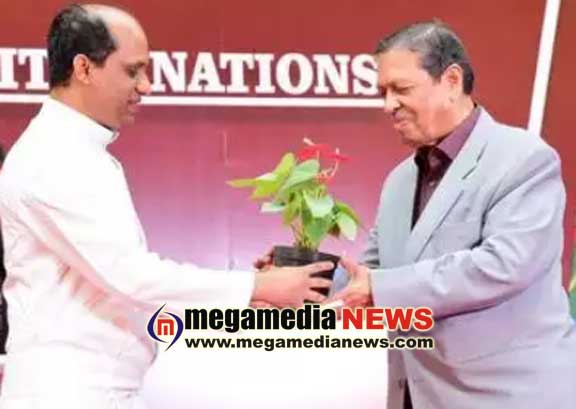Majoritarianism ill-behooves institutions such as UN, Parliament, says N Santosh Hegde
11:12 AM, Monday, November 4th, 2019 Mangaluru : Former Lokayutka N Santosh Hegde on Sunday surmised that majoritarianism is not ideal for institutions such as the United Nations or Parliament, where the voice of the rest is “vetoed” or “brushed aside,” as the case may be. “While both these institutions have done wonderful work in their own spheres, there is greater scope to further reform their functioning to accommodate voices of all stakeholders,” he said.
Mangaluru : Former Lokayutka N Santosh Hegde on Sunday surmised that majoritarianism is not ideal for institutions such as the United Nations or Parliament, where the voice of the rest is “vetoed” or “brushed aside,” as the case may be. “While both these institutions have done wonderful work in their own spheres, there is greater scope to further reform their functioning to accommodate voices of all stakeholders,” he said.
In his keynote address at the valedictory of the 3-day St Aloysius Pre-University Model United Nations, Hegde said the UN was founded on democratic principles after World War II to restore world order, but is dictated by the whims and fancies of the five permanent members of its Security Council. “There should be no place for veto in such an assembly, nor views of remaining 189 nations dictated by what the permanent five on the council want,” he said.
“Likewise, the Indian Constitution that chose democracy as a means of system of governance that upheld the ideal that the system, cannot be the birthright of any elite class, and should show greater patience in listening to the views and problems of others,” he said. “This is the house that looks into development and growth aspects of a nation, and not showing such patience will render its very existence as being of no practical use at all,” Hegde added.
Expressing concern over the disruption of the 14-day session of Parliament in 2014, due to which no routine transaction could be carried out, Hegde said this is not what is expected of a system that is meant to reflect the voice of the electorate that has sent people there to represent them. Citing a TOI report of 2016, Hegde said functioning of Lok Sabha cost the state exchequer Rs 10 crore per day, and this was the taxpayers money in play.
Referring to an audit report that Election Watch brought out for the Parliament for 2004 to 2009, Hegde said 175 out of 543 elected members of Parliament participated in the debates, and this presents a dismal picture of participatory democracy. “Our elected representatives must be the voice of the electorate, based on broad acceptable social values,” he said, adding that failure to do so forces one to rethink on the need for such a system in the first place.
In a word of advice to the youth, Hegde advised them to inculcate values, take responsibility on their broad shoulders, respect rights and duties of others. He also exhorted them to learn two key values in life – contentment and humanism. “Without contentment comes greed and without humanism the tendency to disrespect others in society,” he said. The maiden edition of the event got under way on Friday, where students explored the functioning of the UN.
Simillar Posts
Warning: count(): Parameter must be an array or an object that implements Countable in /home/megamcaq/public_html/wp-content/plugins/post-plugin-library/common_functions.php on line 357
- None Found
Leave a Reply
© Copyright 2008 www.megamedianews.com All Rights Reserved. Privacy Policy








 Posted in
Posted in  Tags:
Tags: 



